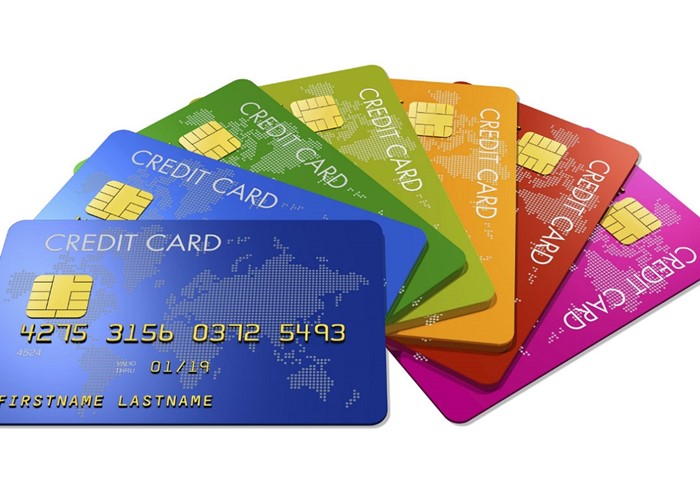Rid yourself of rip-off rates!

A government review of borrowing may lead to rate caps for credit and store cards. About time, too!
Last Friday, Consumer Affairs Minister and LibDem MP Edward Davey made an announcement which really made me sit up and take notice.
Tackling the ‘credit con’
The Department of Business, Innovation and Skills (BIS) and HM Treasury have teamed up to launch a wide-ranging review of consumer borrowing and debt. This review team is asking consumers, businesses and charities for evidence into everyday credit and debt problems.
As a possible outcome of this consultation, the coalition government may introduce legislation to clean up some of the biggest rip-offs in the banking and borrowing world. In my view, these should include the sky-high interest rates on credit cards and store cards, and ridiculously high fines for unauthorised overdrafts.
In addition, the review may recommend a seven-day cooling-off period for store cards, plus changes to the rules governing personal insolvency.
Find out how to pay less interest on your credit card spending, and kick you debts into touch more quickly
Bring on the rate cap!
Some will argue that such changes are ‘closing the stable door after the horse has bolted’, because such legislation should have been introduced during, and not after, the unsustainable credit boom. Others will claim that this is just another bank-bashing effort by MPs keen to distract consumers from worries about austerity measures and job cuts.
Nevertheless, I’m delighted that - at long last - the government is seriously considering appointing a regulator to tackle excessive interest rates. After all, I’ve been arguing for such powers for eight years, ever since I became a financial journalist.
In particular, I’d like to see a legal limit on the interest rates charged by credit and store cards. Even though the Bank of England’s base rate is at a 316-year low, the rates charged by everyday plastic cards remain near their all-time highs.
Recent question on this topic
- vijayvyas asks:
I was paying barclaycard minimum amount each month. Barclays Bank took out large sum from current a/c without permission. Are they allowed to do this?
- JoeEasedale answered "Not unless you had agreed to make a payment to another account, such as a loan, which you had..."
- MikeGG1 answered "I presume that the current account was with Barclays. In which case they would appear to have..."
- Read more answers
Amazingly, after 19 months with the base rate at 0.5% a year, credit card issuers have been raising, not lowering, their rates. Indeed, the typical rate for purchases is now 18.7% APR, which is over 37 times the base rate!
Get rid of rip-off rates
If you’re using the ‘wrong’ credit and store cards, then you could be paying interest of 30% or more a year. At such high rates, your debt doubles within three years, thanks to interest alone.
Hence, the smart move is to rid yourself of rip-off rates by transferring your existing credit and store-card balances to a 0% balance transfer card. By doing this, you can ‘stop the clock’ on interest charges for up to 16 months. Here are four of the best 0% deals currently on offer:
Best Buy 0% balance transfers
|
Card |
0% period |
Transfer fee |
Typical APR for purchases |
|
16 months |
2.9% |
16.8% |
|
|
16 months |
2.9% |
16.9% |
|
|
Royal Bank of Scotland RBS Existing C/Acc Platinum CC MasterCard |
15 months |
2.9% |
16.9% |
|
14 months |
2.98% |
16.6% |
It’s important to note that 0% balance transfers are not an entirely free ride. You will pay a fee for each transfer, typically around 3% of the value of each transfer. So, shifting £1,000 to any of these top-three cards will incur a fee of £29. However, this is a small price to pay for up to 16 months of interest-free credit.
Get interest-free purchases
As well as freezing interest on your existing card debts, it makes sense not to spend any more on interest-bearing cards. Instead, by using a 0% on purchases card, you can enjoy up to 13 months of interest-free credit. Here are three table-toppers in this category:
Best Buy 0% on purchases
|
Card |
0% period |
Typical APR for purchases |
|
13 months |
16.9% |
|
|
12 months |
15.9% |
|
|
12 months |
16.9% |
To take maximum advantage of these cards, be sure to pay off your entire balance before your interest-free deal ends. Otherwise, you’ll be charged interest of 15.9% to 16.9% APR - and you know how much that hurts...
Have your say
Finally, I would urge you to contribute to this consultation on credit, especially if you have a tale to tell which could help other borrowers from being ripped off in future. The consultation closes on 10 December, so you have less than two months to respond.
More: Find cracking credit cards | Why Britain is in deep doo-doo | Bag your share of billions
Comments
Be the first to comment
Do you want to comment on this article? You need to be signed in for this feature